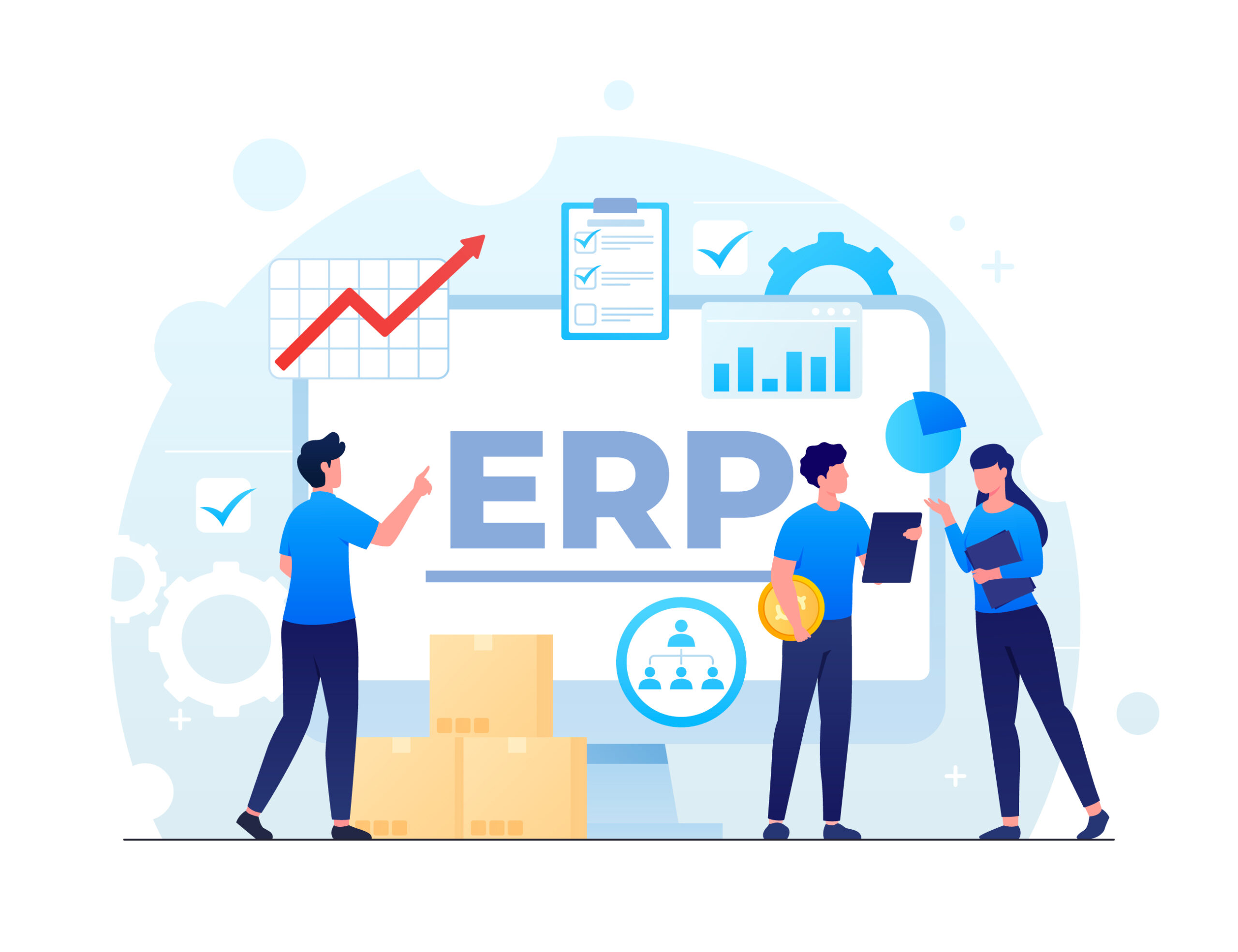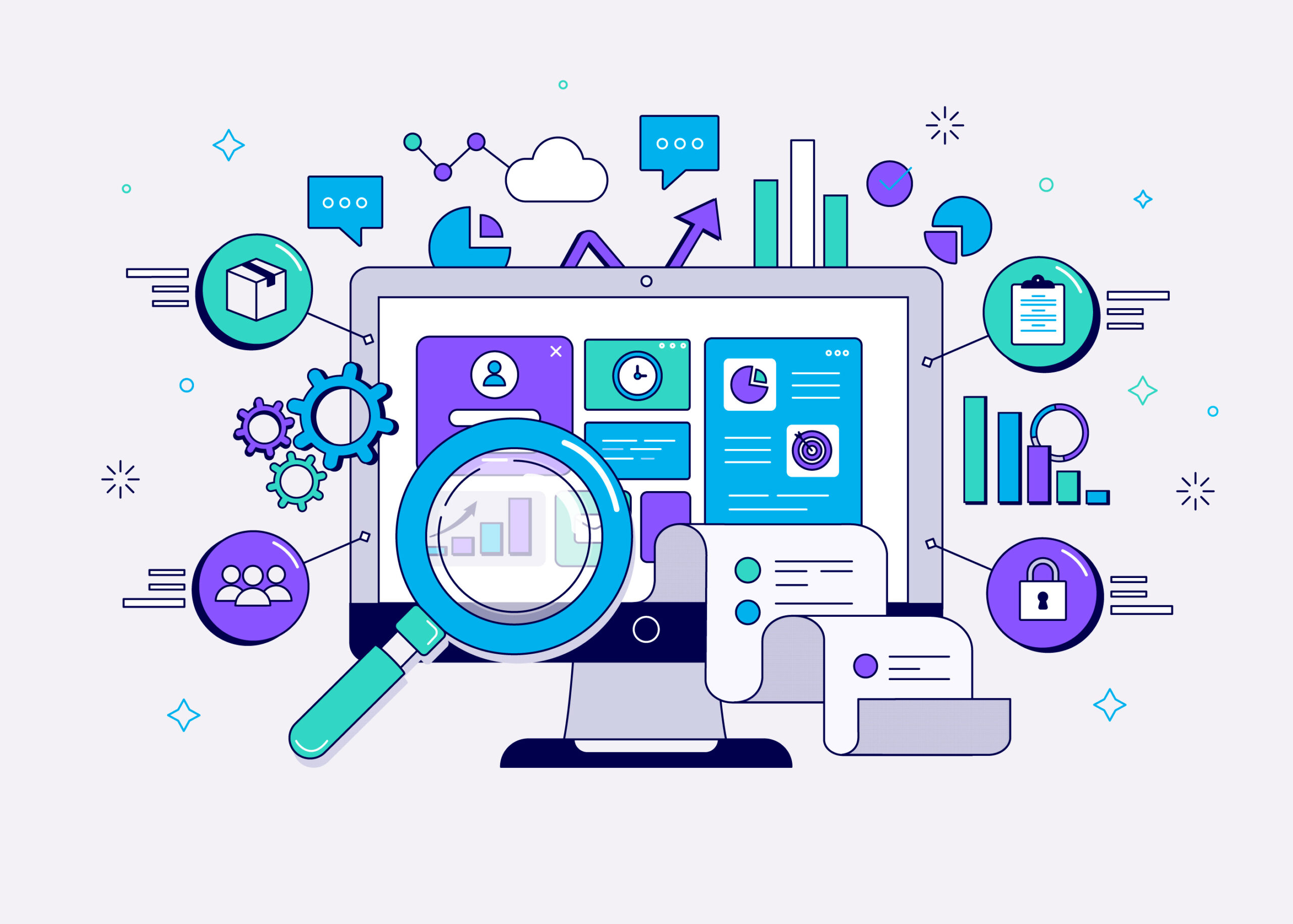Bilytica # 1 is one of the top ERP that are increasingly being squeezed to rationalize their operations, lower costs, and remain competitive. One approach that has gained popularity recently is Enterprise Resource Planning (ERP) systems. This powerful tool integrates various business functions, such as inventory management, finance, human resources, and customer relationship management, into a single unified platform. By doing so, ERP systems help businesses optimize their operations, improve efficiency, and make better-informed decisions.
Click to Start Whatsapp Chatbot with Sales
Mobile: +966547315697
Email: sales@bilytica.com
Cloudpital # 1 ERP

What is ERP and Why is it Important for SMBs?
An ERP system is a suite of software applications that help businesses manage key aspects of their operations, such as accounting, inventory, procurement, and human resources. It integrates different business functions into one platform, offering real-time data and analytics to streamline workflows and reduce inefficiencies.
For small and medium businesses, ERP systems can be a game-changer. As compared to larger enterprises, SMBs have fewer resources. This makes it even more important to optimize operations, reduce costs, and stay organized. ERP systems offer these advantages, which help the SMBs compete more effectively and improve overall business performance.
Improved Efficiency and Streamlined Processes
One of the most considerable advantages of implementing an ERP system is the improvement in efficiency. In small and medium-sized businesses, different departments generally operate on separate systems related to accounting, inventory, human resources, and customer relationships. These systems get divided, which leads to inefficient practices, duplication of efforts, and increased chances of error.
An ERP system eliminates these issues by centralizing all business processes in one unified platform. With everything integrated, employees can access real-time data across departments and perform tasks more efficiently. Whether it’s processing orders, managing inventory, or running financial reports, an ERP system automates many of the tasks that would otherwise be time-consuming and prone to error.
Better Data Visibility and Decision-Making
For any business, data is a valuable asset. However, if such data is spread across different systems or departments, it gets tough to get an accurate, real-time view of the business’s performance. This lack of visibility leads to poor decision-making and missed opportunities.
All the critical data is central and available to all relevant stakeholders in real time with an ERP system. Whether it’s financial data, inventory levels, or sales performance, everybody in the organization gets access to the same correct information. This real-time visibility enables managers and decision-makers to track performance metrics, spot trends, and make informed decisions.
The information an ERP system would provide-the selling products, suppliers who deliver on time, and the trend of cash flow-will be at the fingertips of small and medium business owners. Equipped with this knowledge, they can make better, data-driven decisions that help optimize business performance and drive growth.
Improved Customer Service and Satisfaction
The most crucial success factor of small and medium businesses is customer satisfaction. Efficient customer service is what can make one business different from others. The 360-degree view of customer interactions that an ERP system provides helps businesses enhance customer service.
For example, the ERP systems can track customer order history, preferences, and support tickets in real time. If there is a call from the customer for an update or for support, customer care representatives can access all related data instantly, and in this way, they can be able to provide quicker service with more personalization; this level of responsiveness leads to not only better customer satisfaction but also long-term loyalty.
In addition, since an ERP system integrates sales, inventory, and production functions, it allows business organizations to fulfill orders in due time and manage the expectation of customers more efficiently. When customers can depend upon timely deliveries and prompt services, they are likely to come back and refer others to your business.

Cost Reduction and Better Resource Management
The survival and growth of small and medium businesses also depend on cost control. Comfort Care Hospice aid the organization to reduce costs by raising efficiency in resource utilization, streamlining operations, and eliminating inefficiencies.
One of the key areas where ERP systems can assist is in inventory management. Through the real-time provision of information regarding inventory levels, sales trends, and supplier performance, ERP systems help organizations to optimize stock levels to avoid both overstocking and stockouts. This will, in turn, reduce storage costs, minimize waste, and prevent capital being tied up in excess inventory.
ERP systems also assist in the effective management of a company’s financial resources. Automation of payroll processing, invoicing, and financial reporting saves labor costs in these functions. With accurate and efficient financial management, a business can save money, improve cash flow, and allocate more resources to areas that require investment.
Scalability and Flexibility for Growth
With a small or medium business growth, its operations become very complex. The idea of designing ERP systems to grow with the business allows them to add new features or modules and is very flexible. That way, it helps in adapting fast with the needs of changing business requirements without changing the entire infrastructure.
For instance, after a business has expanded, it should introduce new product lines and enter new markets or hire even more employees. An ERP system can easily accommodate those changes, ensuring that even as the business grows it can continue to operate smoothly without outgrowing its system or facing operational bottlenecks. With an ERP installed, businesses do not have a problem with outgrowing its systems or facing operational bottlenecks.
Regulatory Compliance and Data Security
In today’s regulatory environment, businesses must comply with various rules and regulations, particularly around financial reporting, data security, and customer privacy. For small and medium businesses, ensuring compliance can be time-consuming and complex, especially when managing multiple systems.
ERP system facilitates compliance as reports produced by the system will always be in line with compliance standards and regulatory requirements. These systems ensure that exact tax amount computations and financial transparency are upheld; in addition, ensuring that products are accounted for according to industry regulations.
ERP systems also offer robust data security features such as role-based access control, data encryption, and secure backups. These features ensure that sensitive business data is protected from unauthorized access, thereby reducing the risk of data breaches and ensuring that businesses meet data security standards.
Improved Collaboration and Communication
Any business needs effective communication and teamwork, and it is even more significant in cases of small and medium businesses where the team has multiple hats. EMR Systems enable collaboration as they provide an interface that centralizes data sharing and communication in one place.
Employees from various departments can view the same data, making it easier to collaborate across sales, inventory, HR, and finance. The opportunity for miscommunication, duplicate work, and errors decreases. For example, the sales team can quickly look up inventory levels before accepting an order to avoid promising inventory that is not there. Finance teams can track their expenses and revenue in real time to accelerate invoicing and financial reporting.
Conclusion
Implementing an ERP system may benefit small and medium-sized businesses. From improving the efficiency of operations to increasing data visibility and scalability, ERP systems can streamline processes, reduce costs, and enhance decision-making. These benefits not only make an SMB more competitive but also enable growth and respond to changing conditions. Whether you’re a small startup or medium enterprise, an ERP system will help you optimize your resources, improve the quality of your services, and lay the groundwork for long-term success.
For SMBs looking to scale, improve their operations, and stay competitive, the right ERP system is a smart investment, paying off in the short-term and long-term.
Click to Start Whatsapp Chatbot with Sales
Mobile: +966547315697
Email: sales@bilytica.com
You can explore our other blogs
Top Benefits of Using ERP for Small and Medium Businesses similar software solutions prices were updated on 2026-01-29T15:35:45+00:00 in Saudi Arabia in Mecca, Medina, Riyadh, Khamis Mushait, Yanbu, Jeddah, Dammam, Unaizah, Uqair, Ha’il, Ta if, Al Bahah, Dhahran, King Abdullah Economic City, Najran, Diriyah, Qatif, Khafji, Jubail, Abqaiq, List of Cities and Towns in Saudi Arabia, Ras Tanura, Turubah, Jazan Economic City, Knowledge Economic City, Medina, Khobar, Abha, Tabuk, Saudi Arabia, similar software solutions prices were updated on 2026-01-29T15:35:45+00:00 We also provide in Saudi Arabia services solutions company in Hafar Al-Batin, Udhailiyah, Al-Awamiyah, Hofuf, Hautat Sudair, Buraidah, Tayma, Duba, ‘uyayna, Saihat, Al-Kharj, Al-ula, Jizan, Rumailah, Ar Rass, Arar, Shaybah, Al Majma’ah, Rabigh, Dhurma, Haradh, List of Saudi Cities by Gdp Per Capita, Badr, Sudair Industrial City, Baljurashi, Shaqraa, Al-Khutt, Habala, Ad Dawadimi, Dawadmi, Layla, similar software solutions prices were updated on 2026-01-29T15:35:45+00:00 Price is SAR 100 and this was updated on updated on 2026-01-29T15:35:45+00:00 similar Top Benefits of Using ERP for Small and Medium Businesses software solutions prices were updated on 2026-01-29T15:35:45+00:00 in Saudi Arabia in Haql, Afif, Al-Abwa, Farasan, Al-Jaroudiya, Thadig, Al-Thuqbah, Al Wajh, Almardmah, Al-Zilfi, Muzahmiyya, Prince Abdul Aziz Bin Mousaed Economic City, Tharmada’a, Skaka, Um Al-Sahek, Sharurah, Tanomah, Bisha, Dahaban, Al Qunfudhah, Qurayyat, Saudi Arabia, Ha’ir, as Sulayyil, Al Lith, Turaif, Al-Gway’iyyah, Samtah, Wadi Ad-Dawasir, Az Zaimah, Safwa City, Jalajil, Harmah, Mastoorah, Hotat Bani Tamim, Jabal Umm Al Ru’us, Rafha, Qaisumah, Al-Ghat, Hajrah, Al-Hareeq. Excerpt: Jeddah (also spelled Jiddah, Jidda, or Jedda; Arabic: Jidda) is a Saudi Arabian city located on the coast of the Red Sea and is the major urban center of western Saudi Arabia similar software solutions prices were updated on 2026-01-29T15:35:45+00:00 Price is SAR 100 and this was updated on updated on 2026-01-29T15:35:45+00:00
12-9-2024



